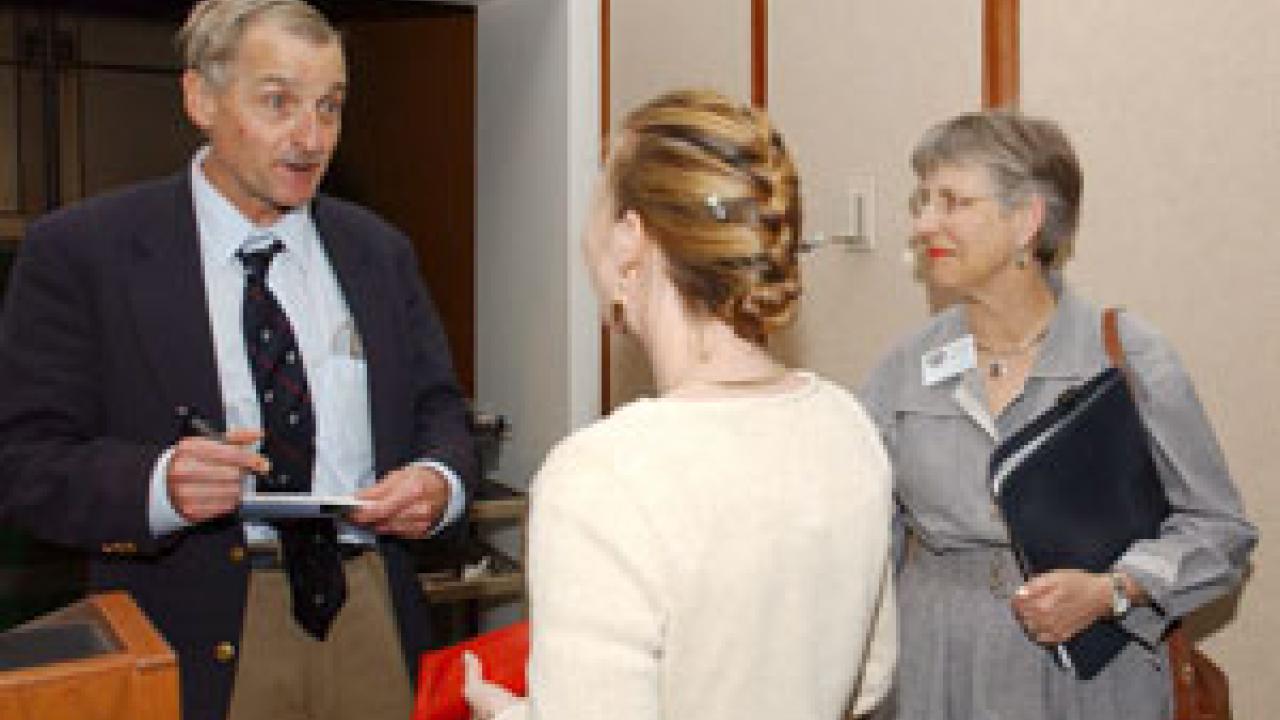REGENERATION IN VIEW: James Battey, chair of the National Institutes of Health Stem Cell Task Force, talks with neuroscience graduate student Bethany Snyder and Provost Virginia Hinshaw Monday during a Major Issues in Biology lecture event. The unique properties of embryonic stem cells could lead to new treatments for diseases such as Parkinson's and Alzheimer's, safer transplants, and new discoveries in tissue development, Battey told the campus audience. Battey's panel is responsible for implementing the White House policy that limits federally funded researchers to cell lines that were in existence in August 2001, and currently has 17 cell lines available. "I hope that in my lifetime, regenerative medicine will be a part of clinical practice, but it will never happen if we don't take the first steps," Battey said. He is also director of the National Institute on Deafness and Other Communication Disorders at NIH and is co-chair of the trans-NIH mouse initiative. His talk was part of the Major Issues in Modern Biology series supported by the Storer Life Sciences Lectureship and the School of Veterinary Medicine.
